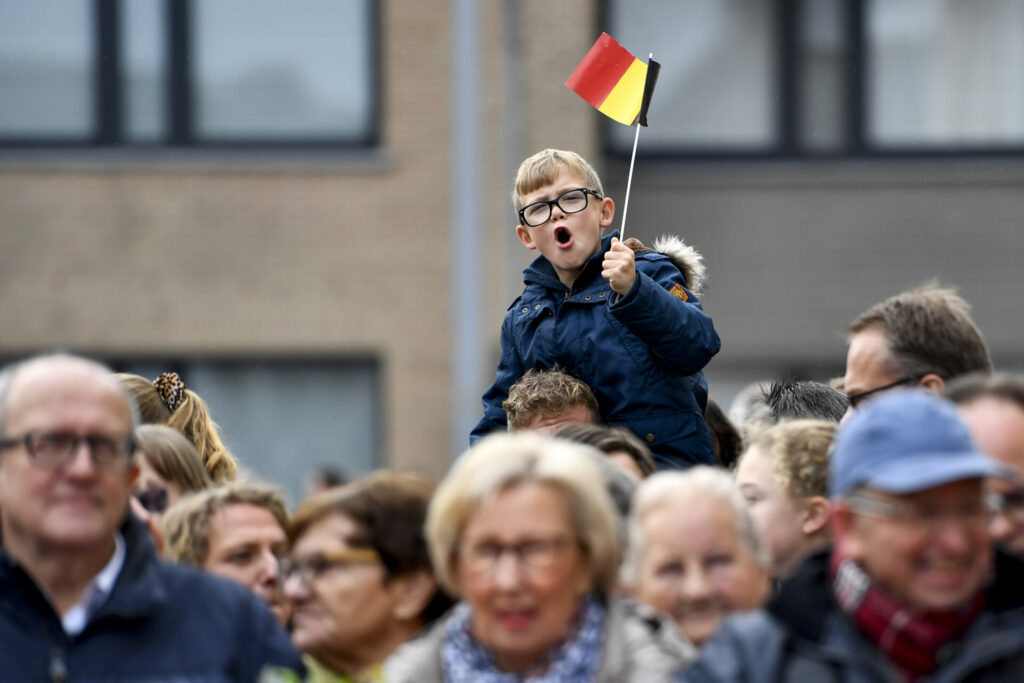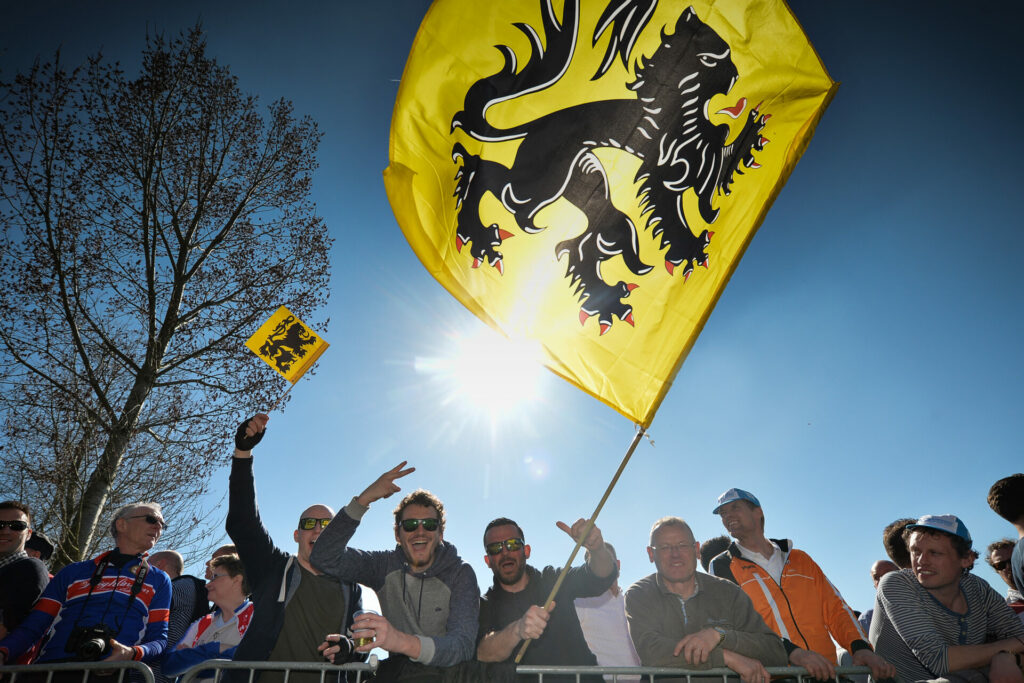While a poll conducted on behalf of the Flemish newspaper Het Laatste Nieuws showed that 40% of Flemish people are seemingly in favour of an independent Flanders, political experts have pointed out that the polling method was flawed and the actual percentage is a lot lower.
Het Laatste Nieuws commissioned a survey from research firm iVox. The researchers presented two propositions to an online panel of 1,000 Flemish people, which they said was representative in terms of gender, age and education.
The respondents were presented with two statements, and they were asked to use a slider to indicate to what extent they agreed with the proposal. Those who did not shift the slider remained in the middle, indicating a neutral position.
The first statement was: 'Make Flanders independent in time,' the second was 'Make Flanders competent for everything except Defence and Foreign Affairs.' That second proposition leans closely to the Flemish rightwing N-VA's vision for confederalism.
Respondents did not have to answer via categories (such as 'Flanders independent' or 'not independent'), but via sliding on a bar that the researchers afterwards turned into a whole from 0 to 100. Anyone who took a position between 0 and 49 was seen as 'not agreeing' with the proposition, anyone from 51 to 100 was. This means that people who slid only moderately towards pro-independence were counted together with the most ardent supporters of an independent Flanders.
Outlier
Professor of Political Science Dave Sinardet (VUB) is amazed by the result. "Every serious scientific survey shows that those in favour of splitting Belgium hover around 10%. Sometimes it goes more towards 5%, sometimes to 12-13%. That is really stable over time," he told Knack.
Sinardet refers to surveys by KU Leuven's Institute for Social and Political Opinion Research (ISPO), among others: after the 2014 elections, 6.4% of Flemish voters showed interest in splitting the country. In 2010, the figure was 11.9%. However, 36.4% did opt for giving more autonomy to the regions and communities in 2014 – a position that is not the same as wanting an independent Flemish State.
In a recent survey by research firm Kantar commissioned by Knack, a similar result emerged: on the proposition 'more federal powers should go to the regions', 35.7% were more likely to agree, and only 10.8% were in total agreement. On the proposition that some regional powers should go to the Belgian level (so-called re-federalisation) 55.1% were more or completely in agreement.
In other words, a pro-independence stance by 40% of the population would be an outlier, going against all previous political research.

A child waves a Belgian flag at a royal visit to Pittem. Credit: Belga / Dirk Waem
Also approached by Knack, economist Willem Sas (Stirling University, KU Leuven) took issue with the wording of the iVox statement. "It speaks of an independent Flanders in due course. That is how you create a vagueness bias: via a leading question, you make it all less dramatic and ignore constitutional hurdles towards independence."
For Sas, this is reminiscent of the Brexit referendum in 2016, where people were given far too little info when asked 'Should the UK remain a member of the European Union or leave the European Union?'
Sinardet, too, pointed out that in due time is not a clear question: "Is this about 20 years or 200 years from now? Additionally, politically less educated people may also interpret 'make Flanders independent' differently from making it a state of its own, implying the disappearance of Belgium."
Related News
- 'Child of divorce': If Belgium splits, what happens to Brussels?
- Vlaams Belang, who are leading the polls, call for splitting Belgium
- Tom Van Grieken: An interview with the man who wants to destroy Belgium
Sinardet and Sas agreed that a survey can only be reliable if multiple options are offered. "You have to give people several choices. From the status quo, over a unitary Belgium to more autonomy for the regions or splitting the country," said Sinardet.
But even if enough options are given, the poll will still fall short, stressed Sas. "There is no such thing as 'the' confederalism. One can think of numerous state reforms leading to different forms of federalism and degrees of autonomy. In Switzerland, for example, the cantons have more autonomy, but the central level there has by no means completely disappeared."

